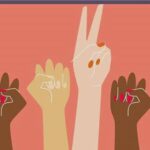 Jahrestagung des Netzwerks GeQuInDi 2025 an der Univ. Bayreuth (Web)
Jahrestagung des Netzwerks GeQuInDi 2025 an der Univ. Bayreuth (Web)
Zeit: 11.-12.12.2025
Ort: Univ. Bayreuth
Einreichfrist: 31.05.2025
Das Netzwerk GeQuInDi freut sich, zum Call for Participation der Jahrestagung 2025 einzuladen. Unter dem Leitmotiv Kontingenz stellt die Tagung Fragen nach der Rolle von Unbestimmtheit, Zufall und Offenheit im Zusammenspiel mit Dimensionen sozialer Ungleichheit. Inwiefern fordert Kontingenz unsere Denk- und Handlungsmuster heraus? Welche Potenziale birgt sie für subversive Strategien, Transformation und intersektionale Perspektiven? Welche Chancen eröffnen sich? Welche Risiken birgt es?
Theoretischer Hintergrund
Gender, Queer, Intersectionality und Diversity Studies hinterfragen Normen, Machtstrukturen und epistemische Ordnungen. Kontingenz lenkt den Blick auf das Unvorhergesehene, das Zufällige und das Nicht-Determinierte. Wie Butler (2002) betont, kann die Sichtbarmachung von Überraschung, Zufall und Kontingenz subversive Potenziale freisetzen und Raum für alternative Realisierungen schaffen. Gleichzeitig wird darauf hingewiesen, dass verschiedene Techniken und Strategien entwickelt werden, um das Zufällige zu kontrollieren oder zu berechenbaren Elementen zu machen (vgl. Zollinger 1997).
In intersektionaler Perspektive eröffnet sich ein produktives Spannungsfeld: Kontingenz kann Hierarchien destabilisieren und alternative Formen von Handeln und Denken ermöglichen, während sie zugleich neue Herausforderungen für Konzepte von Gerechtigkeit und Teilhabe aufwirft. So zeigt sich etwa in kulturwissenschaftlichen Ansätzen, dass Kontingenz als „Transmitter für etwas völlig Neues“ (Kasabova/Langreiter 2007) fungieren kann, während in digitalen Kontexten Zufall und Kontingenz zunehmend als produktive Elemente betrachtet werden (Chun 2008).
Thematische Schwerpunkte Continue reading

 Sexuality Research Network of European Sociological Association: ESA RN 23 Sexuality Mid-Term Conference
Sexuality Research Network of European Sociological Association: ESA RN 23 Sexuality Mid-Term Conference  Frauen- und Geschlechtergeschichte in Österreich – Newsletter #01 für 2024
Frauen- und Geschlechtergeschichte in Österreich – Newsletter #01 für 2024 Henrike Arnold und Paula Neumann (Marburg), Laura Bottenberg (Tübingen), Mareike Ehlert (Osnabrück), Saskia Schomber (München) und Lisa-Marei Stalp (Gießen)
Henrike Arnold und Paula Neumann (Marburg), Laura Bottenberg (Tübingen), Mareike Ehlert (Osnabrück), Saskia Schomber (München) und Lisa-Marei Stalp (Gießen) Netzwerk Oral History; Archiv der sozialen Demokratie, Friedrich-Ebert-Stiftung; Forschungsstelle für Zeitgeschichte in Hamburg; Sammlung MenschenLeben, Österreichische Mediathek: Linde Apel, Isabelle Engels, Michael Maier, Stefan Müller, Tina Plasil-Laschober, Johanna Zechner
Netzwerk Oral History; Archiv der sozialen Demokratie, Friedrich-Ebert-Stiftung; Forschungsstelle für Zeitgeschichte in Hamburg; Sammlung MenschenLeben, Österreichische Mediathek: Linde Apel, Isabelle Engels, Michael Maier, Stefan Müller, Tina Plasil-Laschober, Johanna Zechner